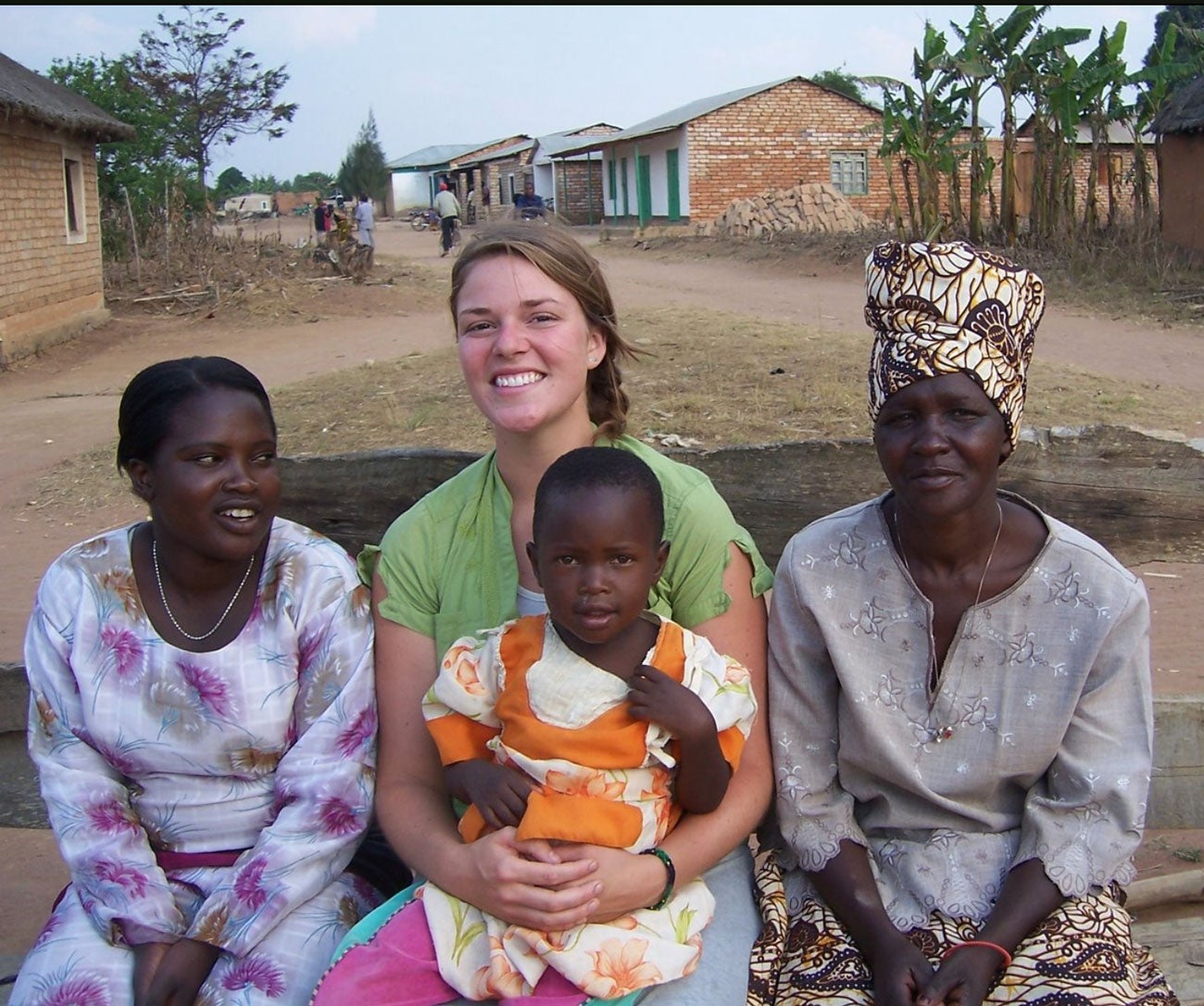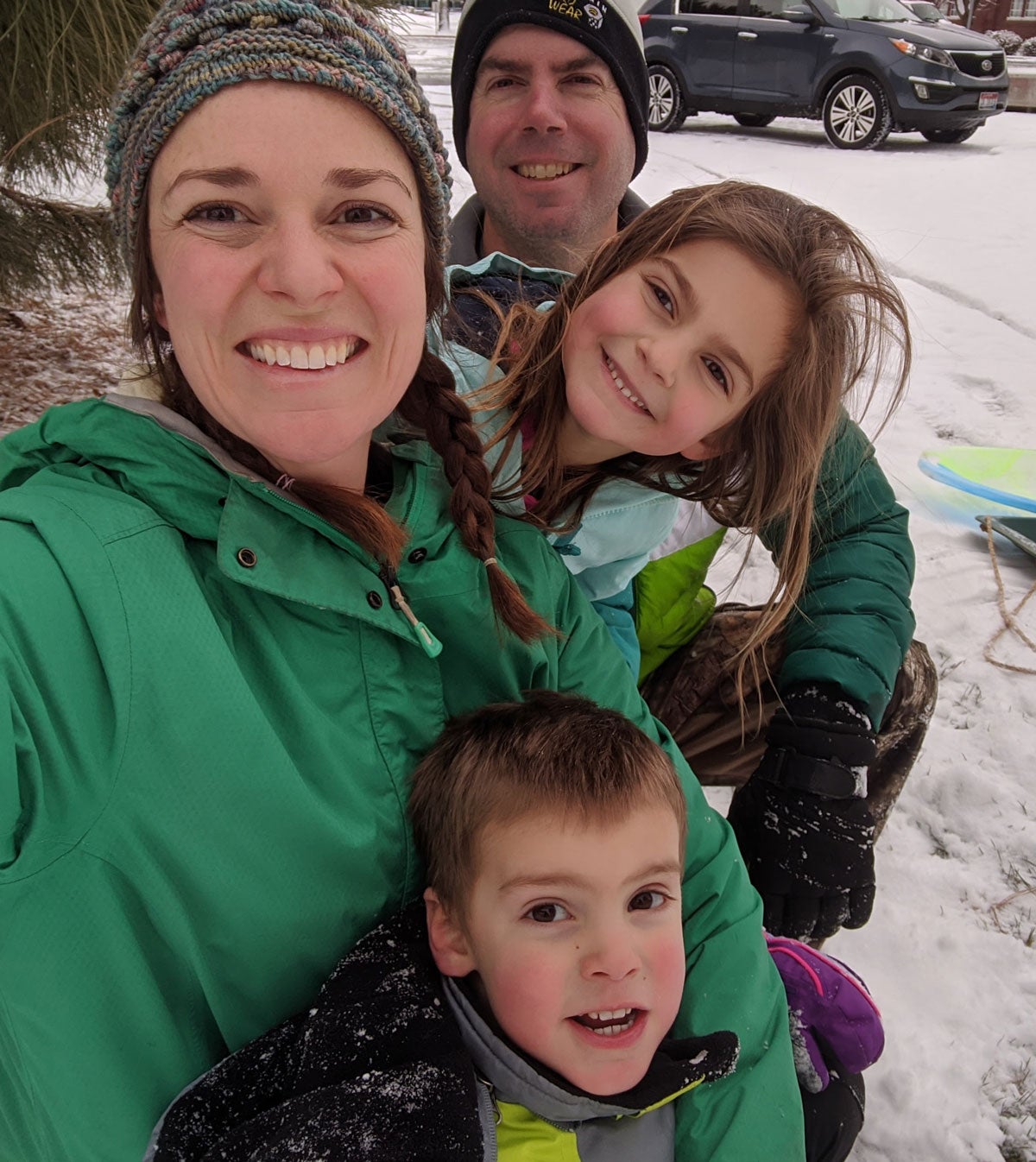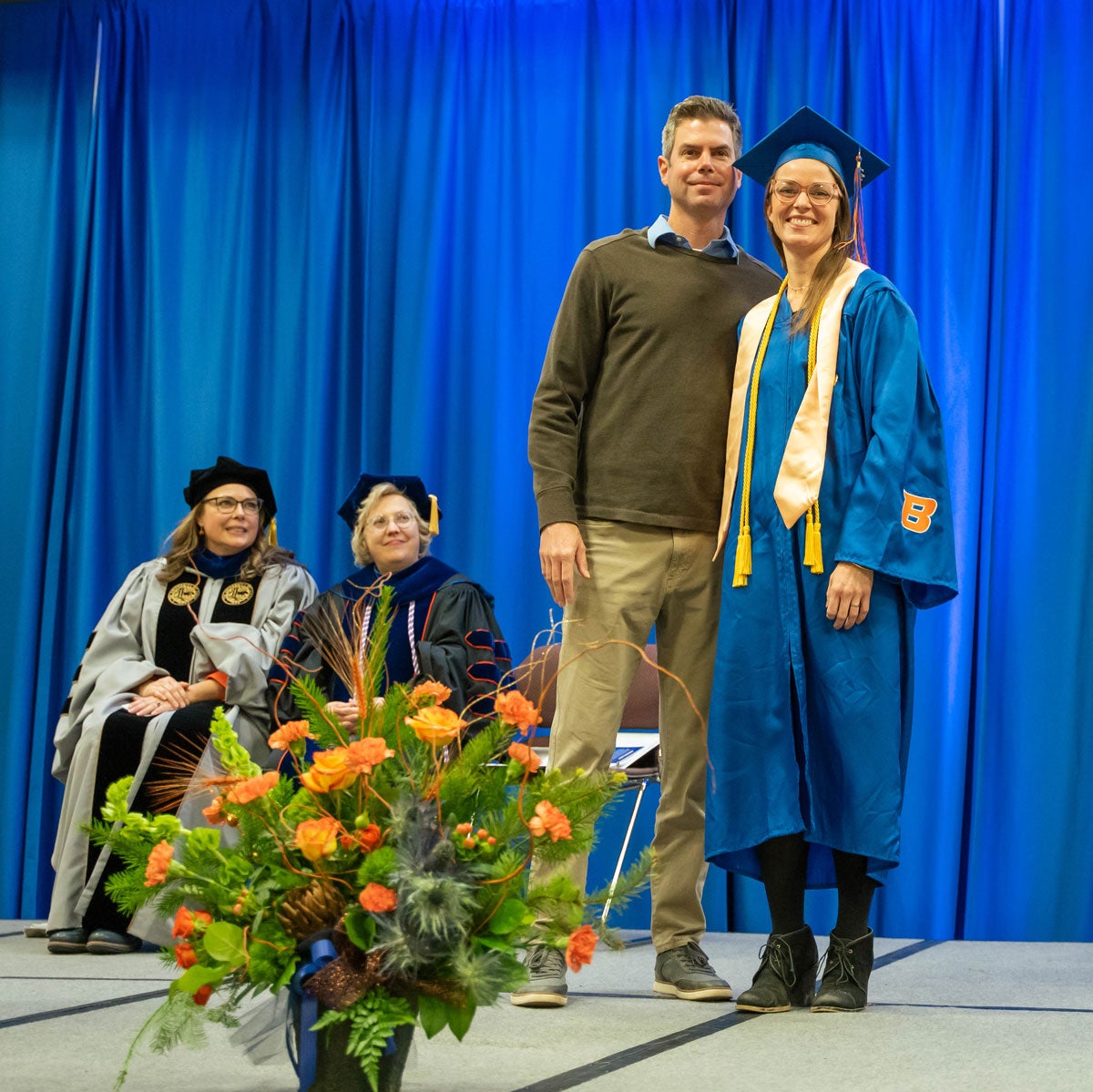While some might consider Margaret Quatraro’s route to the School of Nursing a “meandering” journey, she has always felt a strong connection to women’s healthcare.

After graduating college in 2008, Quatraro spent two years in Tanzania as a healthcare education volunteer with the Peace Corps. The experience had a profound impact on her, and not just because she witnessed her first live birth there.
Quatraro encountered deep, visceral compassion among the people that stemmed from a familial level of care – whether or not persons were actually blood relatives. Since living in Africa, she has only experienced a similar level of care in midwifery.
“Using midwives was just so full of compassion and I felt valued,” she said. “It was just such a different way to provide care than we typically do.”
But it would be several years before she pursued the career.
A difficult transition to…nursing?
After living in Tanzania, Quatraro moved with her now-husband to Seattle and lived there for three years. It was a jarring shock.
“Seattle was big and crazy and healthy and white and awful,” she said. “I would go to the grocery store and be like, ‘How can I pick anything?’”
Coming from a lifestyle where it was dirty, everyone smoked and “it was very European,” she felt revolting and out of place in Seattle’s health-oriented culture. So even though she had interest in pursuing nursing school, self-doubt held her back.
This hesitation followed her for the next several years.
When her husband started grad school in Vermont, Quatraro found a job there in an inpatient mental health hospital. Unfortunately the experience was so unpleasant, she thought, “I’m never doing healthcare again.”

But she repeatedly found herself coming back to it.
In 2017, her family moved to Boise; it was here that she completed a prenatal yoga instructor training. The woman who taught the course understood Quatraro’s desire to work with moms; as a labor and delivery nurse herself, she challenged Quatraro to stop making excuses.
“She was like, ‘Just do this; go to school,’” Quatraro said.
So almost a decade after her healthcare experiences in Tanzania, Quatraro decided: “I want a career I care about.”
It was time to go to nursing school.
Value in the journey, no matter its route
Looking back, Quatraro is grateful her path into nursing was less conventional. If she had started nursing school at 20 or 21, she doesn’t think she would have had the understanding to apply her education to her career the way she does now.

“It’s a lot more fun when you’re an adult and can recognize the significance of what you’re learning,” she said.
Although 44% of her graduating class was over age 25 at the time of enrollment, Quatraro enjoyed learning alongside younger, Gen-Z members of the cohort.
“They’re amazing and they’re going to change the world,” she said.
“It’s easy to be like, ‘Oh my gosh, I can see your belly button and I don’t know why,’” she laughed. “But that’s just a reflection of my own insecurity, really. It’s been fun to work with not just a bunch of millennials.”
Quatraro graduated from the on-campus bachelor’s program this past December; she now works in the labor and delivery department at St. Luke’s Medical Center. In the future, she hopes to bring her experiences and education full-circle.
“The end goal is to be a midwife,” she said. “I would love to be able to provide real knowledge and skills to people living in third world countries who can benefit from these skills.”